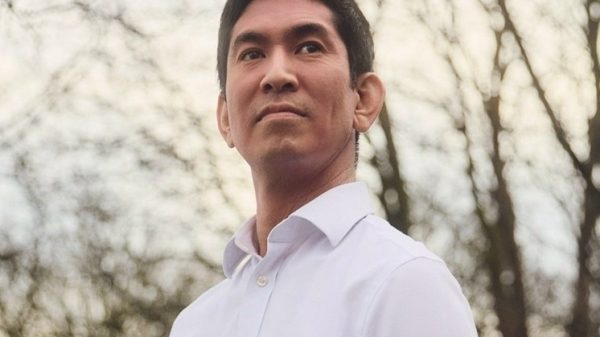 Chelsea players have plenty of practice when it comes to speaking up after defeats. Photo: PA/Martin Rickett
Chelsea players have plenty of practice when it comes to speaking up after defeats. Photo: PA/Martin Rickett
In a more innocent way Once upon a time you might have called what happened after Middlesbrough 0 Chelsea 0 «ugly scenes». Chelsea fans who traveled exactly 272 miles (in the unlikely event that they live at Stamford Bridge) witnessed the team's costly defeat to a side whose best hope for the season is to make the Championship play-offs. Traveling fans, few of whom had come north just to see the Tees Transporter Bridge, were unhappy.
Some Chelsea players gave an apologetic cheer on the road and were greeted with smartphones — because of course — but also a good dose of fury. The booing was loud. You may have noticed this because it was heard on television after the game, when crowd noise is usually drowned out by criticism or blaring advertisements.
Strangely, it's rare to see this kind of conflict in 2024, with fans' anger clearly directed at the players, and the players having to reckon with the people who pay roughly 14 percent of their salaries. It's clear that the Chelsea team didn't look like they knew what to do with themselves.
Some simply went elsewhere. Cole Palmer was heading straight down the tunnel after a horrendous miss almost under the crossbar. He had a terrible night, so perhaps he can be forgiven, but the scenario after such a humiliating defeat is clear. You must go to the fans en masse, look solemn, mutually applaud and publish a banal apology on social networks within 48 hours after the final whistle.
Nottingham Forest provided a textbook example after their 5-0 defeat to Fulham last month, with mutual appreciation from fans and players likely to have continued had stewards not been asked to return home. It was a sure sign that apologies by applause were getting out of hand, at least if the hands stopped clapping. This had much to do with the fact that the beloved Steve Cooper had clearly reached the end of his tenure, but despite the blows, the gesture preserved the emotional contract between fan and team. Chelsea, like most regions at the moment, have lacked such unity.
 Steve Cooper apologizes to fans » Nottingham Forest after their 5-0 defeat to Fulham in December. Photo: Getty Images/Justin Setterfield
Steve Cooper apologizes to fans » Nottingham Forest after their 5-0 defeat to Fulham in December. Photo: Getty Images/Justin Setterfield
Thiago Silva led the way, as expected given his status as the only member of the Chelsea squad who remembers a Tamagotchi. He apologized by raising his hand and was met with boos, but also an acknowledgment that he had bothered to make contact. There was applause in response, and in video taken by fans one guy could be heard saying: «Thiago, Thiago, don't worry.»
Mauricio Pochettino subsequently tried to claim that Chelsea fans were reacting towards Middlesbrough fans, but reports from the away stand and press box suggested the anger was directed directly at their team. This doesn't happen as often as you might think. As football and its fans have lost their innocence, we have all become more aware of the realities of the sport. There is a growing understanding of what sets clubs off course, and players rarely try hard enough.
More often than not, a club is in crisis due to system failures, lack of cohesion, and sometimes because your manager was a member of the “golden generation.” As a result, even when teams have clearly lost tools such as Ole Gunnar Solskjaer's Manchester United, fury is still directed at the management who allowed things to get so bad.
More often than not with United and Forest, the target is the manager. This is player power in action, a multi-year PR campaign that suggests even the most underperforming midfielder is just one new coach away from realizing his potential. Changing coaches is clean, easier than uprooting a squad, and satisfies an impatient thirst for consequences and, let's face it, blood.
There is also a tendency to stubbornly support your team, especially on the road, which prohibits mutiny. No matter how bad things get, singing in support to demonstrate loyalty, dedication and that your fans are “good fans” is almost macho. Of course, if you're looking for anger now, you turn to the Internet, where criticism comes more easily and with much more vitriol. Those who attend games usually do so long enough to realize that booing rarely achieves anything. But perhaps the next step would be to turn the anger inwards?
Supporters may begin to berate themselves for following their team and vow to never again go to Middlesbrough on a school night like this no matter how tasty Parmos is. Look out for next season's must-have fan accessory, the successor to the selfie stick or player jersey sign: the club's official self-flagellation whip.






















































Свежие комментарии